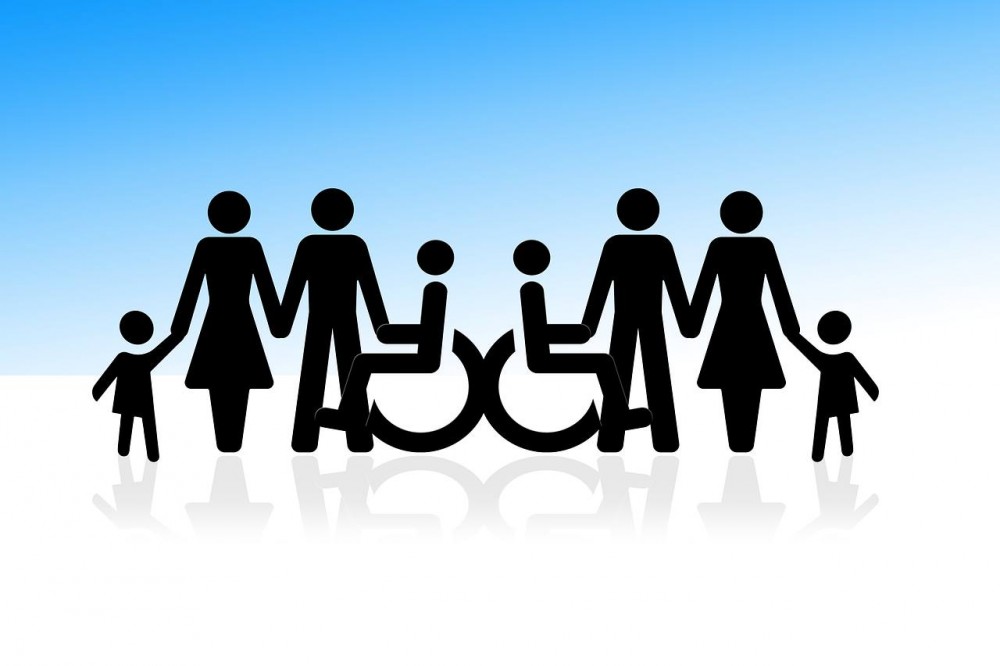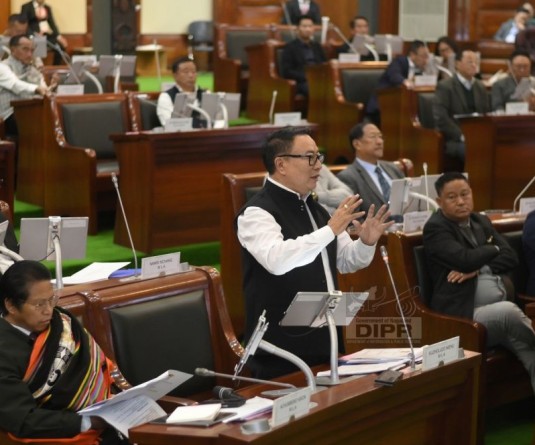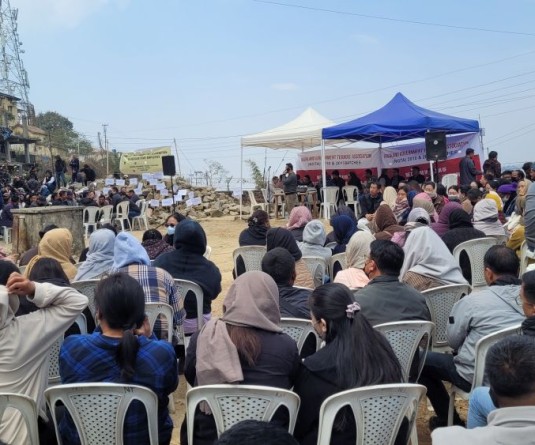National Disability Network has issued a memorandum of demands to the Government of India to ensure that Persons with Disabilities (PwDs) are not left behind in the fight against the COVID-19 pandemic. (Image Courtesy: Gerd Altmann from Pixabay)

National Disability Network issues ‘memo of demands’ to Centre
DIMAPUR, JUNE 5 (MExN): The National Disability Network (NDN) has issued a memorandum of demands to the Government of India to ensure that Persons with Disabilities (PwDs) are not left behind in the fight against the COVID-19 pandemic.
The NDN stated that there are instances of people with disabilities dying due to lack of access to food and medicine or healthcare while social distancing has taken away the crucial support that they were otherwise accessing.
There is also the fear of being quarantined if tested positive in places that are most likely to be inaccessible, it said.
It added that deaf people are unable to keep themselves updated with information due to lack of sign language interpretation of speeches or awareness materials and are unable to access helplines. Students with disabilities are also suffering as they are unable to access online education due to several barriers.
It is unfortunate, the NDN said, that hardly any relief measures have been announced to support these most marginalized and vulnerable people.
Nagaland State Commissioner for Disabilities, Diethono Nakhro while issuing a copy of the memorandum to the public stated that while the COVID-19 pandemic threatens all members of society, PwDs are disproportionately impacted due to attitudinal, environmental and institutional barriers.
PwDs are also the first to be de-prioritised during shortage of food and medicines and will have least access to medical care and therapy, she maintained, adding that they are invariably the last to receive critical information due to inaccessibility of communication.
Meanwhile, Arman Ali, Executive Director of the National Centre for Promotion of Employment for Disabled People (NCPEDP) said that there are more PwDs in India than the entire populations of Ireland, New Zealand, Austria, Uruguay and Kuwait.
All the might and reach of the government, thus, is needed to provide relief to such vast numbers, he said.
The NDN recommended the constitution of a high-level National Task Force, with representation from PwDs, in the PMO and in all States, UTs and Districts.
It also called for creation of a relief fund for PwDs and ensuring that 5% of the total funds allotted for COVID 19 relief/care is allocated for PwDs.
It further suggested a simple method for PwDs, who do not have a disability certificate to get a temporary disability certificate from a registered doctor or a special educator, which should enable them to access support/benefits.
The need for testing centres and quarantine places/hospitals to be made accessible for PwDs was also highlighted, along with the need for accommodations (such as caregivers, sign language interpretation and other specific support) for those visiting or admitted in these centres.
District Disaster Management Authorities should collect data of people with disabilities, elderly people and those with medical conditions through door to door surveys. The data collection tool should be prepared in consultation with disability experts, it added. This should be done to ensure that support is available at the community level and that food, medicine and other essential products/services are provided at home.
Meanwhile, the NDN recommended increasing the ex-gratia money to a minimum of Rs. 5000 per month, not just to those registered under Indira Gandhi National Disability Pension Scheme (IGNDPS), as is being done currently, but to all PwDS including children.
Another demand was the announcement of unemployment and caregiving allowance, not just for those registered with the employment exchange, but also to those who have lost job or livelihood in this pandemic.
It added that all the programmes and schemes (relief measures, skill development, employment, entrepreneurship, etc.) should take into consideration disability (including diversity in disability), gender and age.
Meanwhile, the NDN advised that all information related to safety, relief packages, circulars, speeches, awareness materials etc. should be available in accessible formats (sign language, Braille, accessible soft copy, large print, easy to read etc.).
All helplines should also have a provision for sign language support and information on chat and be manned by trained staff. A separate helpline should be launched for people with disability for disability specific queries, it recommended.
A scheme to provide laptops/tablets, preferably with course material uploaded and assistive technologies for students with disabilities was also advised.
In the same vein, the NDN said that concrete measures, in consultation with DPOs, should be taken to ensure that online programmes/e-services (such as the e-vidya program, telehealth, employment portals, online news, e commerce etc.) provided by Government and private services are accessible.
Finally, the NDN called for steps to initiate e-rehabilitation services and a nationwide community based programme.






